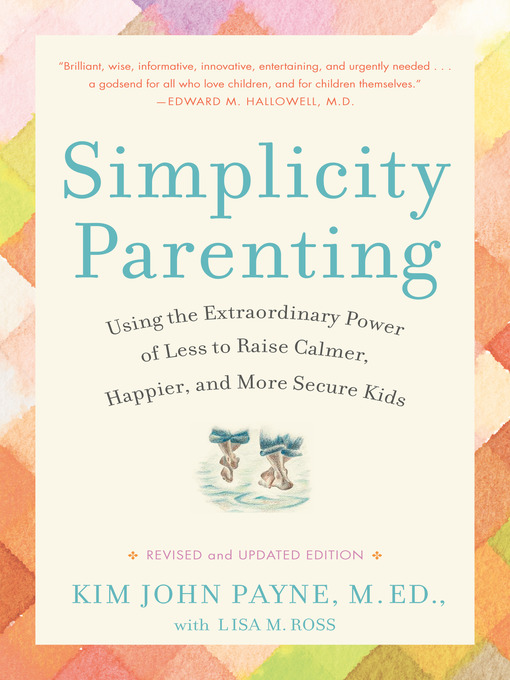 |
| Photo Credit "For every disease, there is a cure." Prophet Muhammad |
At four weeks postpartum, I was bending over cardboard boxes, deciding which books I would need for the next year, and which I could part with. As I straightened up, I tightened the knot on the belly wrap designed to put my fragile insides back together. To help me pare down my closet, I needed a dear friend, and the unwavering opinion of my fashion sensible midwife. I guess plaid is out, who knew? The fragile moments of the first couple of weeks post -birth, already seemed like another lifetime's dream. By the time my mother came to meet her newest grandchild, her only daughter was in need of some ibuprofen and a shoulder to cry on. Not to mention the help I needed washing the dingy curtains, and packing those aforementioned books. (Note to self: A Kindle is warranted until you buy a house!) It wasn't an option to take a back seat. My husband accepted a once in a lifetime opportunity to study with a respected teacher and continue his academic studies. One short month after meeting my son, it was LA or bust. I was tending towards the latter.
If this were a movie, I would roll the credits first, because without the support of family, friends, and community, none of this would have happened. It was an outpouring of generosity like no other. Each night I found freshly cooked food at my doorstep, or steaming from my table. Clothes for the baby, and even my daughter arrived unbidden. One talented and creative friend sewed bags filled with activities for the older ones, and baked the best sugar-free, grain-free snacks a gluten sensitive mama could hope for. My son went to the zoo, and Fairy Land, with an ice cream stop to boot. The last baby I delivered before I had mine, even made an appearance. And I would be remiss not to mention the presence of a fellow midwife, who truly midwifed me through one of the hardest days of my life. She was born to do this work. God bless her. It was awe inspiring and bittersweet, for soon I would be leaving this nest of community and warmth. But first, I'd have to put the Boppy aside, and pack up the entire house.
It's hard to follow your own advice, though I endeavored. I rested in bed for two weeks, stayed warm, gave myself warm oil massages, ate the best darn food I could. Hell, I even gave myself moxa treatments. But the looming move crept in and all of my best laid postpartum care plans shrank in response. STRESS became a real and unwelcome guest. Oh, did I mention 'the shooting'? There was one, in front of my house, at dinner time. We had the luxury of leaving that night. May God help and raise up those mothers who don't. It seemed stress was everywhere I turned.
 |
| Evidence of my herbal medicine nesting! |
There was however, one burst of nesting which became my postpartum savior. In anticipation of the move, my settled pregnant self dove into herbal medicine making. It was a way to hedge myself against what I knew would become a harried postpartum. Sitz bath herbs, nursing teas, arnica and St. John's Wort oils, valerian root, motherwort and echinacea tinctures were all brewed up and bottled before I delivered. It was a gift to myself and a sure stroke of intuition, for I needed these herbs even more than I anticipated.
 |
| Credit |
The move, turned out to be a minor blip in the scheme of things. My husband and I had to be separated, all told for over a month. (The LA rental market turned out to be less than friendly to a family of 5!) My little ones and I lived with the most generous brother and sister in law you could ever ask for, for one month. It was an epic postpartum I tell you. It was going to take more than some nursing tea to get me through. It was going to take the heart of a lion.
Luckily, I had the closest thing I could get, the plant called motherwort , leonurus cardiaca, Latin for lion hearted. Brewing this tincture many moons ago, I had anticipated using it for the afterpains. Motherwort, or mother's herb, is an antispasmodic and a uterine tonic. And for those first few days, I was taking it every half hour or so to quell the crushing afterpains. However, motherwort is more than that, it is also a nervine and sedative and often used in the treatment of stress and nerve related disorders.
This is what the respected herbalist Susan Weed has to say about this herb:
Another of motherwort’s uses is to improve fertility and reduce anxiety associated with childbirth, postpartum depression, and menopause. If used in early labor it will ease labor pains and calms the nerves after childbirth. Take motherwort only once soon after giving birth as consistent use before the uterus has clamped down may cause bleeding to continue. Use one to two times a day in the weeks following birth for easing tension and supporting a woman through the feelings that come with new mothering.
One lonely morning, as the two year old was melting down, the baby was crying, and my poor six year old looked just plain apathetic, I found the full bottle of motherwort tincture waving at me from my bathroom bag. I took two full droppersful. My shoulders instantly dropped from my ears. A plan of action soon formed in my mind (calm the two year old first, always!), and the overwhelm seemed to diminish. The courage to pluck on grew in this delicate new mama heart. Throughout the next month, motherwort became my green friend. I took it morning and night, and whenever the two year old decided to dig in her poopy diapers (yes, you read that correctly. A habit she developed once moving into the pristine enclave of my in laws!) Motherwort, take me away! Two droppersful and I could exhale again, feel the ground hold me up, and march on.
It's been three months since then. Ya Sin is four months old, just rolling over, and charming us all with his easy going grin. My 8 ounces of motherwort tincture is long gone. There are many mornings or mid afternoons, where I could still use it to be sure, but I find myself brewing that nursing mother's tea now. "For every disease there is a cure", said the Prophet Muhammad. While my postpartum was not a disease, it was excessive and warranted a cure of its own. I believe in medicine of all kinds. Each tupperware filled box cooked for us was medicine. Every phone call or text message to see how I was, was medicine. For everyone who joined me on my couch and listened, I healed. These were all cures for my state. But motherwort certainly lived up to its name as a mother's herb. It was the cure for this mother during a less than ideal postpartum.
I once heard that the medicine you need, is always with you, you just have to be open to it. That was certainly the case with me and motherwort. May you always find the medicine you need, when you need it. Thanks for your patience. Want to know how I made these tinctures without alchohol? Stay tuned, I have a post coming up!!




















